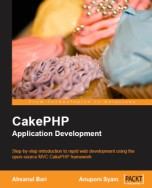I just got done reading “Squid Proxy Server 3.1 Beginner’s Guide” by Kulbir Saini, from Packt Publishing.
(Full disclosure: Packt sends me free books on the condition that I review them. However, I’m under no obligation to say nice things, and they keep sending me books even when I say harsh things.)
Quick version: The writing style is ideal for a beginner – clear descriptions of concepts, rich in step-by-step examples and section reviews/summaries to clarify why you just did what you did. Frequent exercises reinforce concepts. Saini writes like a teacher.
Saini’s writing style suggests to me that he’s been teaching this material for quite some time. Every concept has copious examples and suggested exercises to help you remember what you’ve learned. Concepts are clearly defined, clearly explained, and then illustrated before moving on to another concept. Previous concepts are reintroduced and incorporated into the new ones as you go along, so that idea builds upon idea.
This is a book to be read in order, but aso is structured so that someone at an intermediate level can go back and use individual sections as reference.
I love reading technical books that aren’t dry and boring, and which inspire me to be a better writer. Oh, yes, and I learned a lot about Squid, too.
I presume that the content isn’t really quite so specific that it’s only for 3.1, but having not used Squid for an extended time, I can’t say for sure.
The book starts with clear descriptions of the general concepts of proxying, but very quickly gets hands-on and specific to Squid. This is how I like it, because I learn by examples and doing.
So, on the whole, I give this book a firm thumbs up. I’m always a little hesitant doing a review of a book on a technology I don’t know by an author I don’t know, because I make it a firm rule to say the book stinks if it stinks. So it’s always a joy to read a book like this that exceeds my expectations, and turns out to be not just ok, but actually really well written.

